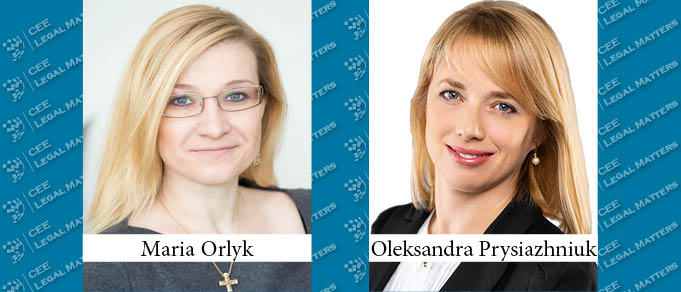Good corporate governance contributes significantly to increasing company value and strengthening the confidence of investors. It has been promoted in Ukraine, as across the world, in the past few decades, and in March 2020, the Core Code of Corporate Governance, which was based on the work of over 50 Ukrainian and international experts, was adopted by the National Securities and Stock Market Commission of Ukraine (NSSMC).
The Code is built on international standards as well as best corporate governance practices, and incorporates the G20/OECD principles for corporate governance. In Ukraine, the Code is an instrument of soft law, i.e., it is recommended rather than mandatory. At the same time, the implementation of the Code is highly advisable both for listed companies and those entering the capital markets. The Code is also an important reference point for listed companies making annual corporate governance disclosures. Other public and private companies may benefit from the Code when building an effective management system.
What are the major recommendations contained in the Code?
Company Objectives: The Code provides guidance on setting company goals and objectives. In particular, it contains recommendations on how to achieve long-term sustainable value and maximize returns to the shareholders, depending on the company’s type and business.
Shareholders Rights: Some shareholder’s rights are provided by law, which should be generally respected. In practice, however, due to gaps in the law, shareholder’s rights may be just superficially acknowledged. The Code provides recommendations regarding the establishment of a system of management that ensures the equitable and fair treatment of all shareholders. One of the suggested innovations is the adoption of a Shareholder Engagement Policy that facilitates the interaction between the company and its shareholders as well as the shareholders’ participation in any decision that fundamentally impacts the company or their interests. The NSSMC plans to develop a model Shareholder Engagement Policy as part of its future work.
Supervisory Boards: The ultimate responsibility for ensuring that companies achieve their objectives lies with the Boards, which should be fully accountable to shareholders. The Boards are thus expected to oversee implementations of strategic objectives while supervising the company’s management. In order to do so, they should be composed of professionals with impeccable reputations. The Code regulates Board composition and selection requirements in detail and recommends trainings to help a company build and maintain a well-informed and effective Board. It also provides guidance as to effective leadership by the Board’s Chair, and optimization of the Board’s work through committees. The Code stresses the special role of a corporate secretary and provides recommendations as to best performance of its functions.
Cooperation Between Management and the Board: Management is responsible for the daily operations of the company, staffing, goal setting, administration, enforcing policy, and so on, under the supervision of the Board. It is thus of utmost importance that an open and constructive dialogue exists between Management and the Board. The Code suggests that in organizations with good governance practices, both the Board and Management are well-informed of their distinct roles and do not infringe on each other’s responsibilities.
Disclosure and Transparency: The Code suggests that companies should have a Disclosure Policy that describes what information the company will disclose and how it intends to communicate with shareholders and the markets. A company is expected to disclose all information that could have an effect on its share price or stewardship decisions, including information about its financial performance and position.
Control, Environment and Ethical Standards: The Code recommends that companies should have adequate internal controls over operations, financial reporting, and compliance matters, and that they should establish a risk management framework, and formal internal audit and compliance functions. The Code also substantiates the necessity for companies to introduce Ethics Codes, Anti-Corruption Policies, and Conflict of Interest Policies. The Code lays special emphasis on the sustainable management of environmental and social risks.
Good governance demands significant effort, corporate transparency, and accountability. It is defined by a large number of practices and structures, and may be found only if the Code’s recommendations are properly reflected in company charters and internal policies. Once in place, however, good corporate governance policies will significantly contribute to business efficiency, competitiveness, and trustworthiness, and will definitely increase company value.
By Maria Orlyk, Partner, and Oleksandra Prysiazhniuk, Senior Associate, CMS RRH Ukraine
This Article was originally published in Issue 7.12 of the CEE Legal Matters Magazine. If you would like to receive a hard copy of the magazine, you can subscribe here.




